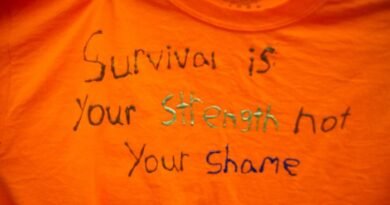Commentary
Years ago I recall seeing a mock recruitment poster for the U.S. Marines that went something like this: Join the Marines! Travel around the world! Meet new people … and kill them!
A man from Western Canada seems to have taken this idea, broadly speaking, to the extreme.
The Israelis report that a
Canadian citizen, possibly from Cold Lake, Alberta, obtained a tourist visa to travel to their country and launch an attack with a knife against Israeli Defence Forces (IDF) in Netiv Ha’asara, about 60 kilometres south of Tel Aviv, abutting Gaza’s northern border. Alas, he never learned the most important lesson of violence: never bring a knife to a gunfight. IDF soldiers gunned him down, with no injury to them or any civilian.
This incident has serious implications for Canada-Israel relations, as I shall outline. First, however, it is important to note that this is not the first occasion on which a Canadian citizen has left to carry out a terrorist attack abroad. As discussed in detail in my latest book “
The Peaceable Kingdom: A History of Terrorism in Canada from Confederation to Present,” Canadian citizens have joined Al Qaeda, ISIS, and Al Shabaab, while others have perpetrated attacks in Algeria, Somalia, Iraq, and Bangladesh.
Furthermore, we collectively dodged a bullet in the past when it came to terrorism. In December 1999, Ahmed Ressam tried to enter the United States at the B.C.–Washington border with a car full of explosives. The so-called “Millennium bomber” was headed to LA’s main airport to execute an attack to coincide with the advent of the 21st century. Thankfully, alert U.S. border patrol agents noticed his nervousness at the crossing and prevented him from achieving his goal.
This near miss was serious for Canada. Sources told me that the U.S. government warned Canada that had Ressam been successful, relations would have taken a turn for the worse. We in national security took note (Ressam had been on the radar of the Canadian Security Intelligence Service) and realized we needed to do better. As a side note, after 9/11 our greatest concern was to ensure our U.S. allies that Canada had nothing to do with the Al Qaeda hijackers that day.
But back to the Alberta jihadi.
It wouldn’t surprise me if Israel is now the one asking the tough questions. Was the man known to CSIS or the RCMP? If so, what intelligence was shared? How did he get a tourist visa to Israel (in fairness, this is on Israel, not us). Who else in Alberta was aware of this? It is not as if the province is immune to Islamist extremist rhetoric and radicalization (there as
an attack in Edmonton 2017 by an ISIS wannabe, several Islamist extremists lived in the Edmonton region dating back to the 1990s, and
an Edmonton man was just convicted under the UK’s anti-terrorism act for his support of Al Mujahiroun). Calgary has had similar issues for decades.
While the Israeli investigation is undoubtedly still underway and we may learn more about the dead terrorist’s motivation—or not, it depends on what he may have posted or said to others—the fact that a tourist visa was used to enter Israel could lead to future more stringent procedures for Canadians seeking to visit the country. After all, Israel is at war with Hamas and Hezbollah simultaneously, and both groups have followers in Canada, a fact underscored by the demonstrations on university campuses and elsewhere by individuals who see these
listed terrorist entities as some kind of “freedom fighters.”
Canada cannot be seen as lax on this issue. Islamist terrorism is not only a threat to Israel but to us as well, as arrests by the RCMP on
ISIS plots against Jewish targets here have confirmed. We also cannot be seen as a country that allows its citizens to kill and maim elsewhere (I once heard a senior official dismiss this as, “Well, at least it is not happening here.” I am not kidding). If we are to be taken seriously by our allies, of which Israel is one, we need to do better.
And we need a government that recognizes jihadism as the world’s No. 1 terrorist threat, as it has been for the last four and a half decades.
Views expressed in this article are opinions of the author and do not necessarily reflect the views of The Epoch Times.





